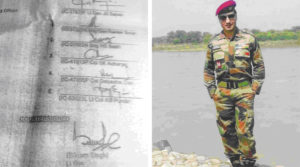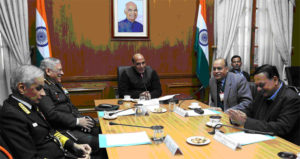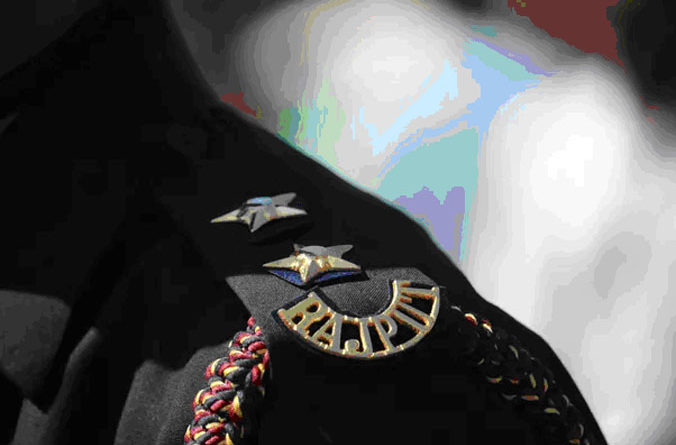The Indian Army’s Officer Promotion Policy Needs Urgent Overhaul!
By Major General VK Madhok (Retd)
21 Nov 2020
“There is something terribly wrong with our military leadership, and the political leadership would do well to put it right before India has another 1962.”
The promotion system of the Indian Army’s elite Officer Corps awaits a radical reform. Rampant Corruption has gradually seeped into the higher echelons of a once near infallible institution. The past decade has been a witness to numerous cases of corruption at the highest offices of the Indian Army. In December 2009, four General rank officers were indicted in the 71 acre Sukna land scam. In 2012, the Adarsh Housing Scam and the Tatra Truck Scandal rocked the Indian Army to its core.
The grotesque killings by a rogue military intelligence unit between 2009-2012 highlighted the rot all the way up to the Army’s highest office, bringing out some skeletons hiding in a former chief’s closet. A case still being fought by a lone army officer who was made a scapegoat and decorated with a pile of trumped up charges for having had the audacity to speak out against the heinous crimes committed by this renegade group of intelligence operatives.
In 2018, a National Defence Academy (NDA) Commandant, a Lieutenant General rank officer, found himself in troubled waters during a Central Bureau of Investigation (CBI) enquiry concerning corruption. Another harrowing case saw a former Army Commander and Vice Chief of Army Staff (VCOAS) under CBI investigation in Pune denied bail to go to Delhi.
In 2012, there was a mutiny in two combat units in Ladakh and at Samba in April and August respectively, where officers were beaten up. These are not mere anecdotes, but instances which highlight a deep rooted problem; there is something terribly wrong with our military leadership, and the political leadership would do well to put it right before India has another 1962.
Dirty Fatigues
“The grotesque killings by a rogue military intelligence unit between 2009-2012 highlighted the rot all the way up to the Army’s highest office, bringing out some skeletons hiding in a former chief’s closet.”

Signature’s of the Army’s top brass pointing towards the murders (L) and a picture of the high profile whistleblower (R)
The questions which we must answer are: How did the Annual Confidential Report (ACR) system fail to detect character flaws in these officers during the 38-40 odd years of their service? Is the promotion system subjective and thus obsolete? How did these officers reach higher ranks? What major reforms are required to improve or replace the present promotion system?
The Defence Minister and his staff would do well to address these issues with promptitude before the situation degenerates further. As it is, corruption has become talk of the media, society and even conversations within officer’s messes. It is a situation with adverse effects on morale without which an Army will suffer defeat.
A “Major” Problem
“How did the ACR system fail to detect character flaws in these officers during the 38-40 years of their service? Is the promotion system subjective and thus obsolete? How did these officers reach higher ranks? What major reforms are required?”

Indian Army’s senior leadership with Defence Minister Rajnath Singh during the Army Commanders Conference
The cornerstone of the existing promotion system is the ACR. Besides, promotion examinations from Lieutenant to Major, military awards, course reports, and commendation enhance individual prospects, while punishments and censures retard these. ACRs are reviewed by an officer’s Reviewing Officer (RO) and Superior Reviewing Officer (SRO). Selection boards which meet periodically base their judgments entirely on ACRs.
Recommendations are then forwarded to the Ministry of Defence in respect of Colonel and above, for confirmation. The Military Secretary (MS) Branch handles all data, records, posts officers based on ACR recommendations, monitors and assists the promotion boards. It is of interest to note that nearly 80-90% officers are graded as above average by the Initiating Officers (IOs) as they don’t want trouble in their units, or representations.
An officer is considered only thrice in a rank for promotion after which he may leave the Service if he/she so desires. No endorsement is conveyed to the officer by the RO or the SRO unless there are adverse remarks. The ACR form consists of approximately 10-12 qualities varying for those up to Col, Brigadier, Major General and Lt Gen. respectively.
Thus, the officer has to do well in these qualities many of which are outdated. If great military commanders like Alexander the Great, General Montgomery, Gen Rommel, Babar, etc. were to be put through these qualities they would all end up as Majors!
Furthermore, Military Secy work is handled by amateurs! To put things into perspective, officers do a tenure of two-three years and civilians from 10-12 years or so. Thus we may have an MS heading this important branch for the first time and retiring at the end of his tenure in the MS Branch.
Yet Another Colonial Hangover…
“An individual sees himself as a partner in his career development. Why not? it’s a legitimate aspiration. The present system does not cater to this. The entire career planning of the officer is done by those sitting in the MS Branch. The system had its utility in a colonial set up, not in a democracy.”

Troops from the British Indian Army; Archival Image
Here is a system which was designed to suit the British Empire some time in the 1940s for military leadership of a colonial army. It remains closed, while the environment has opened up.
Promotion and Selection systems must now meet five criteria: Ensure individual participation and avoid treating the officer as a hostage; have an appraisal channel for a positive and direct feed back to the officer regarding his contribution, weaknesses and strengths; be sufficiently open and decentralised, be fool-proof against meddling and have an independent adjudication authority for cases requiring redressal.
The first three essentials are missing in the present system and remaining two suspects. These are good enough reasons for complaints and court cases. With new work styles, availability of information and questioning of past values and procedures, an individual sees himself as a partner in his career development.
Why not? it is a legitimate aspiration. The Present system does not cater to this. The entire career planning of the officer is done by those sitting in the MS Branch. The system had its utility in a colonial set up but not in a democracy. Unless revitalized it would be totally obsolete as we move into the next decades of the 21st century.
A fresh concept based on the five criteria as aforementioned should be applied in three stages: That is, at the grassroots level-from recruitment to the rank of Lieutenant Colonel. Selection Boards from Lt Col. to Col. and Brig, and finally, Rejection Boards from Brig. to Maj/Lt Gen.
No officer should be superseded permanently. The ACR form should consist of just one page, both sides. An officer should write about his performance, his ambition and areas he would like to work, etc, on the first page. While the RO and SRO as Moderators should comment on the second page regarding officer’s performance. Their endorsement, in full, should be communicated to the officer. A Career Advisory Cell in the MS Branch should be easily approachable to an officer for advice and consultation.
Looking For A ‘Few Good Men’
“There is a mindset, to compare Army officers with civilian bureaucrats operating from air conditioned offices. This is the greatest blunder we have committed. A Military leader cannot lead his men without character.”

The Defence Minister having a dialogue with the military top brass and the bureaucracy
At the first stage maximum screening should take place. No substandard candidate or cadet should be recruited or commissioned. The Services Selection Board’s (SSB) criteria for selection needs a drastic upward revision as the standards of Junior Commissioned Officers (JCO) and Other Ranks (OR) have gone up. Standards must not be compromised to make up deficiencies.
A former Army Chief had once recommended dilution of Selection Board qualitative requirements to make up shortages. This is the worst possible thing which could happen. After commissioning, officers failing in promotion examinations with an additional Retention Examination (used to be held earlier) should be issued Show Cause notices and called upon to resign after a number of specified chances.
The second stage of Selection/Promotion Boards is of crucial importance. It needs to be made sure that unsuitable officers do not reach senior ranks. At the third stage, that is, Brig to Maj Gen and Lt Gen, an Officer should be rejected only if he is found wanting in any of the three qualities: Moral turpitude, Cowardice in battle and Disloyalty to the state.
Otherwise he takes his turn for promotion except for those who are outstanding and should be promoted out of turn. This measure will cut out two major banes of the present system: A fear complex and sycophancy. While age and availability of vacancies will rationalise should any anomalies arise?
We are already living in an information based society. Where people demand transparency and accountability. The concept suggested above is one option in line with this. It need not necessarily be the best one. Whatever system is adopted it should meet the five criteria. Armed forces are the mirror of a society.
In them, the Society sees the reflection and application of its highest principles. The Selection and Promotion systems must have the sanction of the Parliament so that it becomes difficult for anyone to circumvent these by laying down Staff and Command Streams or meddling with the qualitative requirements for promotion.
There is a Mindset, to compare Army officers with civilian bureaucrats operating from air conditioned offices. This is the greatest blunder we have committed and the Defence Minister would need to correct this. A Military leader cannot lead his men without character (integrity, moral courage, fortitude, willpower, a sense of Justice and the art of command in warfare). Our recruitment system and training schedules would need to, I suggest, concentrate on this aspect so that only officers of character reach higher ranks.
(Maj Gen. VK Madhok is a product of the 1st Course JSW/NDA and was commissioned into the 3 GR. He was the BGS HQ Southern Command and the COS at HQ 4 Corps. He retired as the ADG (TA). He lives in Pune. The author can be reached on Email: majgenvkmadhok@gmail.com)
Courtesy: Opera News/Mission Victory India

